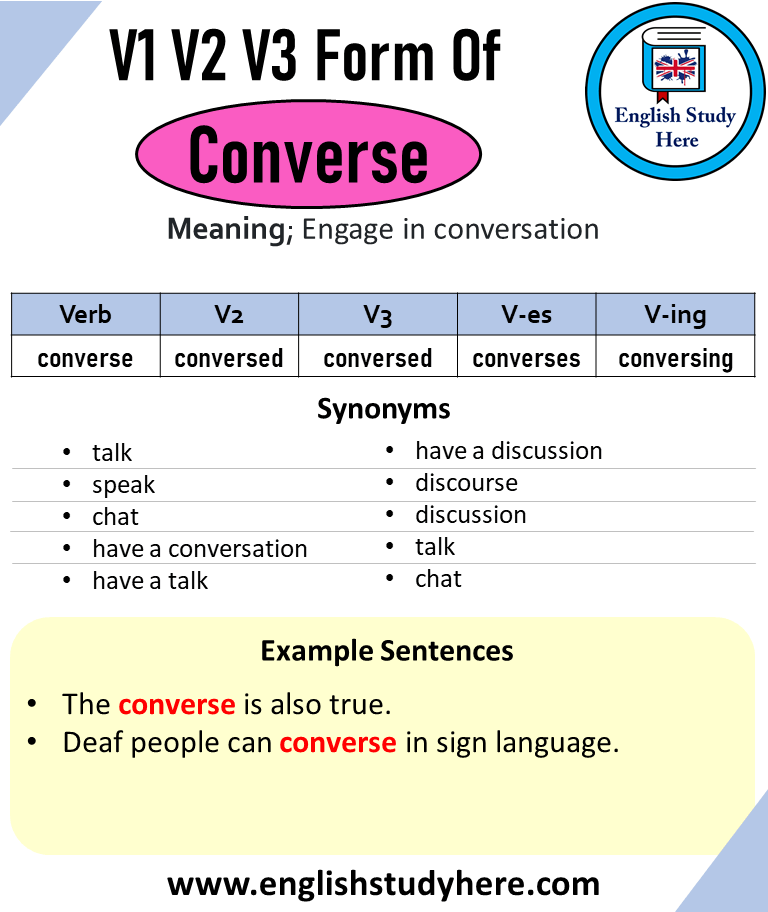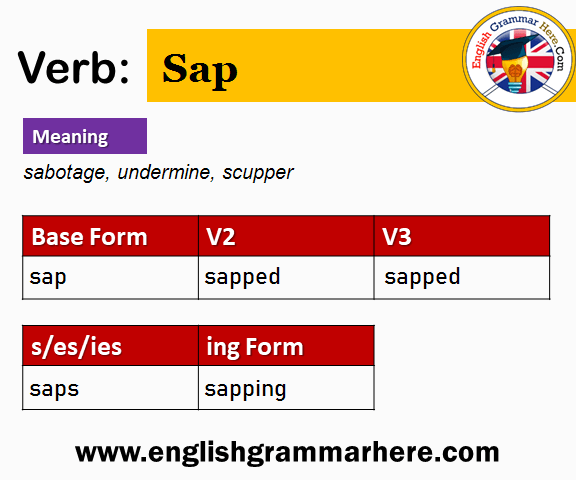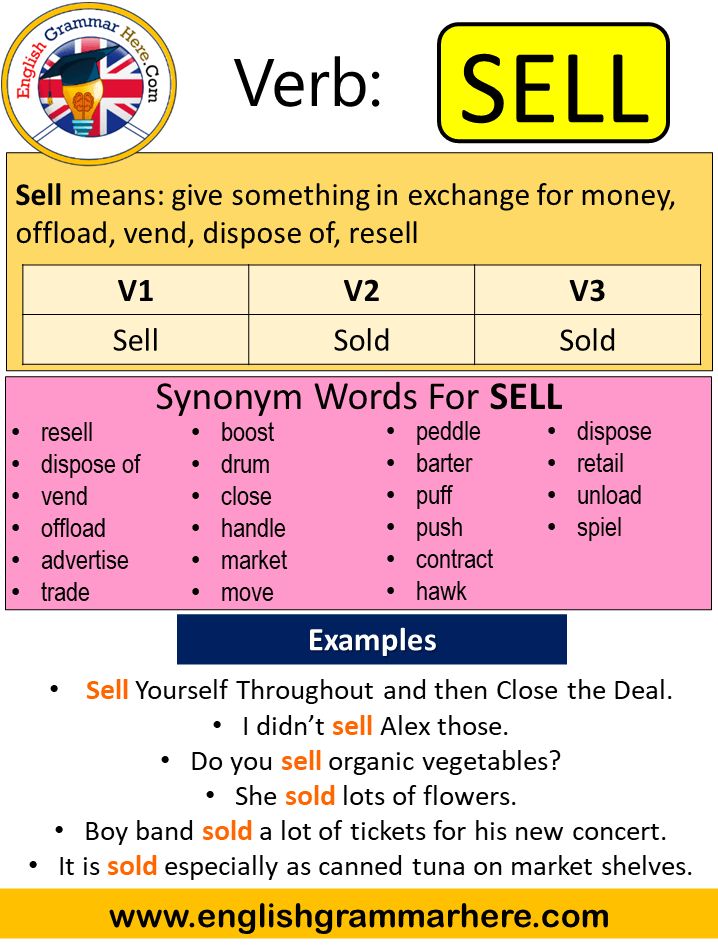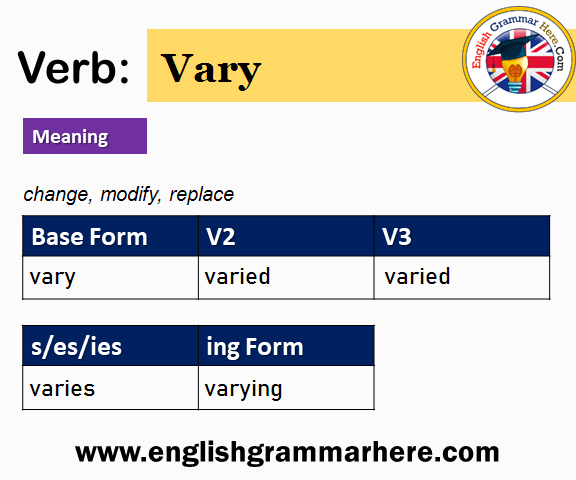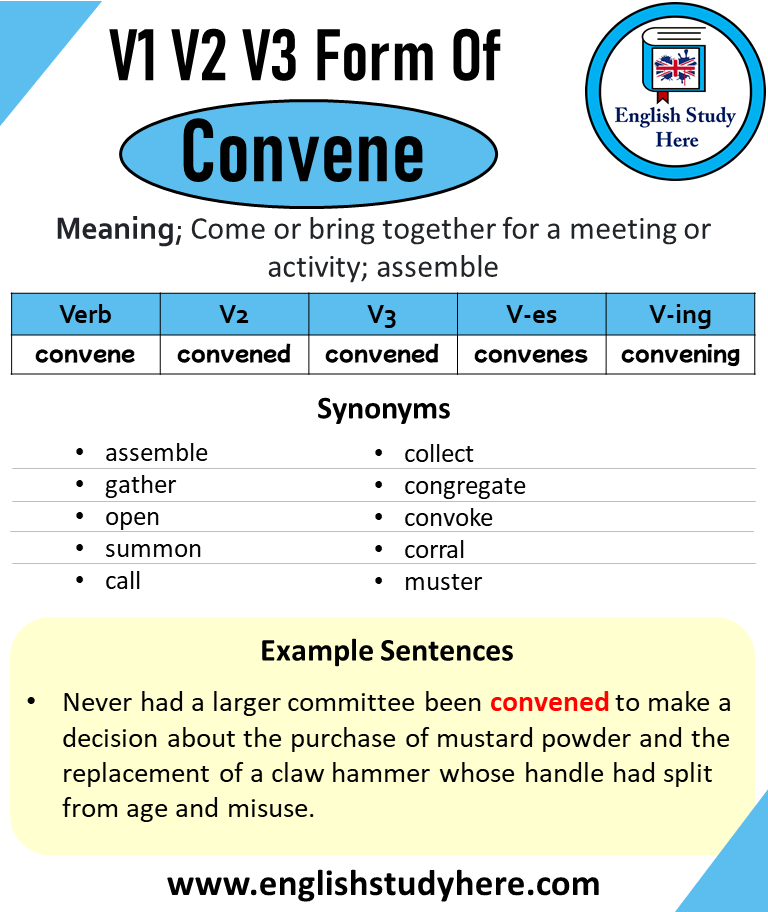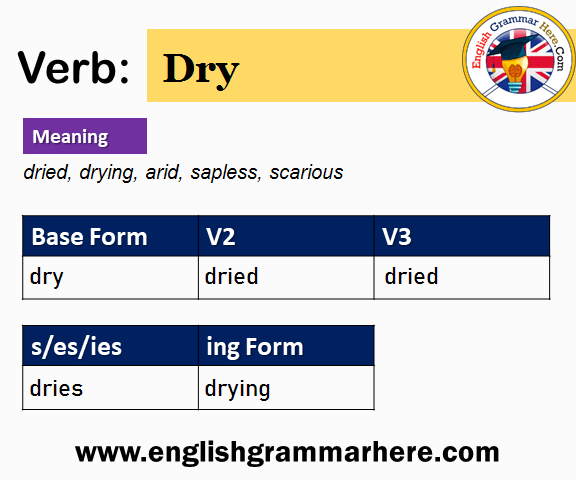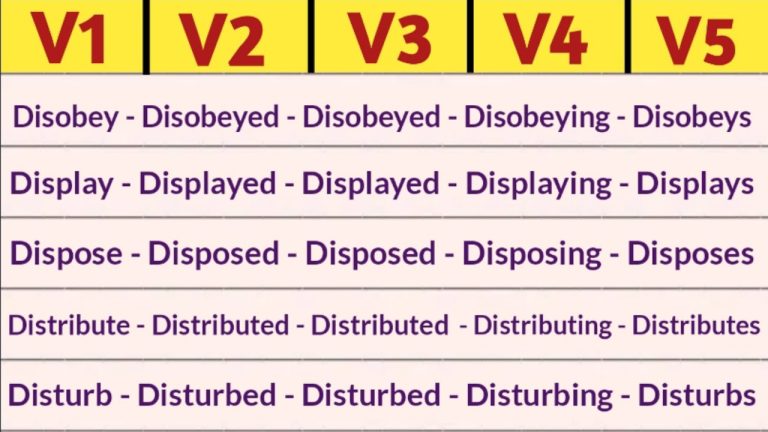Converse Past And Past Participle Form V1 V2 V3 V4 V5 Form of Converse
Are you curious about mastering English verb forms? If so, you’re in the right place.
Understanding the past and past participle forms of verbs can transform your language skills. Today, we’re diving into the world of the verb “converse. ” By the end of this article, you’ll know exactly how to use its V1, V2, V3, V4, and V5 forms with confidence.
Imagine being able to communicate with clarity and precision, whether you’re writing an essay, having a conversation, or simply improving your English. Keep reading to unlock the secrets of “converse” and take your language mastery to the next level.

Credit: www.pinterest.com
Conjugation Of Converse
The verb “converse” has different forms. The base form is V1, which is “converse”. For the past tense, use V2, which is “conversed”. The past participle is V3, also “conversed”. The V4form, or present participle, is “conversing”. Finally, the third person singular, or V5form, is “converses”. Each form helps us understand different times and actions. Using the right form is important. It helps us talk about past, present, or future. Practice helps us remember these forms. It makes speaking and writing easier.
Past Tense And Past Participle
Converse is a verb we use to talk. The past tense form is conversed. We use it to describe a talk that happened before. The past participle form is also conversed. We use it with helping verbs like “have” or “had”. These forms help us know when a talk happened.
I conversed with my friend yesterday. She had conversed with her teacher before the test. We have conversed many times about this topic. These sentences show the past and past participle forms in action.
| Verb Form | Example |
|---|---|
| V1 | Converse |
| V2 | Conversed |
| V3 | Conversed |
| V4 | Conversing |
| V5 | Converses |
Usage In Different Contexts
People often converse to share ideas and thoughts. The word “converse” changes with time. In the present, we say “converse”. For past events, use “conversed”. When describing something that happened before another event, use “conversed” again.
Converse has many forms. The present tense is “converse”. The past tense is “conversed”. In perfect tenses, use the past participle, which is also “conversed”. For ongoing actions, use “conversing”. In commands, simply say “converse”.
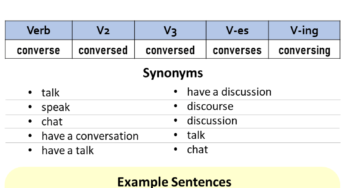
Credit: englishstudyhere.com
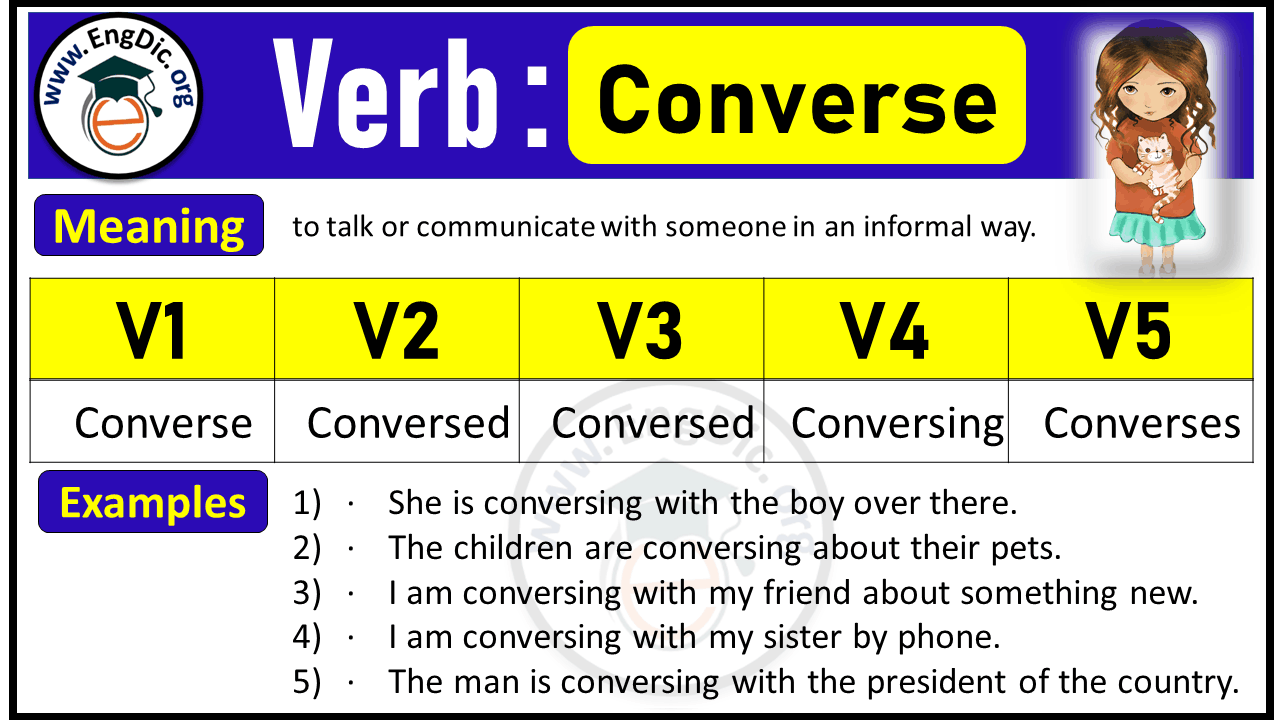
Credit: sadf.eu
Conclusion
Understanding the verb forms of “converse” enhances your language skills. Practice using V1, V2, V3, V4, and V5 forms daily. These forms help in expressing thoughts clearly. Converse confidently in both writing and speaking. Remember, regular practice makes perfect. Try using these forms in sentences you create.
This will improve your English communication. Keep learning and exploring language nuances. It’s a rewarding journey. Language mastery requires patience and effort. Enjoy the process of learning and growing. Your skills will improve over time. Keep conversing and learning.
